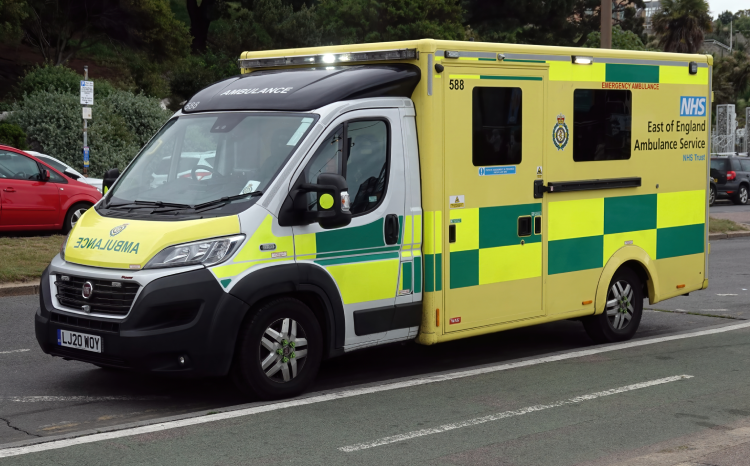A partnership between East of England Ambulance Service NHS Trust (EEAST) and Excelerate Technology has enabled ambulance crews to consult stroke specialists via video in areas without reliable mobile coverage.
Poor signal in rural and coastal regions within the EEAST patch had previously forced paramedics to be cautious and take patients to A&E even when a stroke was unlikely, adding pressure to emergency departments and delaying treatment for patients who need specialist stroke care.
Excelerate’s Excell’s technology integrates a long-range cellular antenna with a bonded router that intelligently combines network links to ensure hospital-grade connectivity from the roadside.
This allows paramedics to access Mobile Stroke Video Triage (SVT) even when there is a poor signal, so that they can assess symptoms in real-time, consult hospital specialists, and direct patients to the most appropriate pathway to thrombolysis, thrombectomy, or outpatient Transient Ischaemic Attack (TIA) clinics.
A trial of Excelerate’s Excell’s technology took place across five EEAST vehicles between October 2024 and July 2025, allowing clinicians to diagnose earlier, convey more appropriately to specialist stroke centres and respond more efficiently when a stroke was suspected.
Brittany Farthing, clinical lead for SVT at EEAST, said: “Stroke Video Triage has been live in the East of England since 2022, and reliable connectivity is essential to unlocking the full potential of this technology – and indeed, all remote care solutions.
“This trial with Excelerate demonstrates how connectivity challenges can be addressed, and we’ve shared our findings with other UK Ambulance Service NHS Trusts as part of our ongoing collaboration.”
During the trial, technology achieved a 93% reduction in reported SVT connectivity issues, 100% connection success in areas with officially “no mobile signal”, and 64% of jobs reporting strong-to-excellent signal strength.
With 40% of SVT consultations now conducted from vehicles fitted with Excell, crews have reported more confidence in using mobile triage pathways.
Bethan Evans, chief operating officer at Excelerate Technology, said: “The success of the Excell trial within EEAST proves that robust mobile communications are not a luxury, but a clinical necessity.
“Reliable communication is non-negotiable in stroke response and this deployment demonstrates how technology can support faster triage decisions, improve patient outcomes, and relieve strain on challenged hospital services.
“We would like to expand this solution across other ambulance services and parts of the NHS where robust mobile connectivity can literally save lives and improve clinical outcomes.”
Meanwhile, in August 2024, Hull University Teaching Hospitals NHS Trust announced plans to trial a pre-hospital video triage scheme to allow rapid assessment of stroke patients.
The six-month trial, which launched on 2 September 2024, connected stroke coordinators, supported by stroke service consultants, to Yorkshire Ambulance Service crews using video technology, enabling visual checks and digital evaluation of patients.
